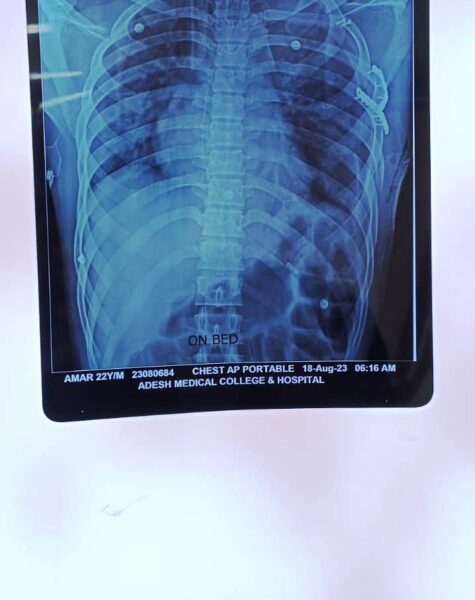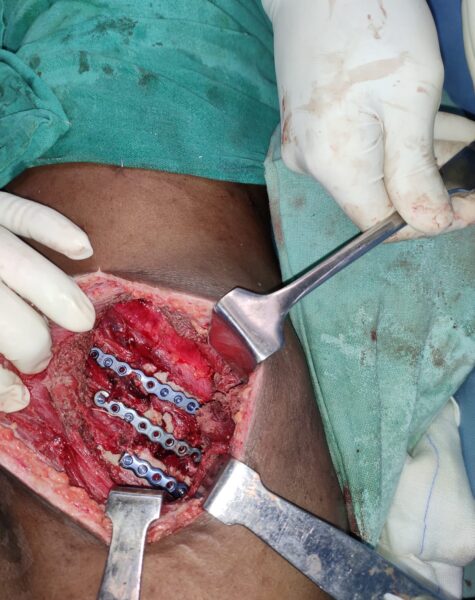Trauma Surgery
Trauma surgery is a surgical specialty that focuses on the management and treatment of injuries resulting from traumatic events, such as accidents, falls, or violent incidents. Trauma surgeons are specially trained to provide immediate and comprehensive care to patients with severe injuries, often in emergency situations.
Here are some key aspects of trauma surgery:
1. Emergency care: Trauma surgeons are skilled in providing immediate emergency care to patients with life-threatening injuries. They work in trauma centers or emergency departments, where they assess and stabilize patients who have sustained severe trauma. This may involve managing bleeding, securing the airway, and addressing other critical injuries.
2. Surgical intervention: Trauma surgeons are trained in various surgical procedures to repair injuries and restore function. They may perform procedures such as exploratory laparotomy (abdominal surgery), thoracotomy (chest surgery), orthopedic surgeries (for fractures and musculoskeletal injuries), neurosurgical procedures (for head and spinal injuries), and vascular surgeries (for arterial injuries).
3. Multidisciplinary approach: Trauma surgery involves a multidisciplinary team approach to provide comprehensive care. Trauma surgeons work closely with other specialists, including emergency medicine physicians, anesthesiologists, critical care physicians, radiologists, nurses, and rehabilitation therapists. This collaborative approach ensures that patients receive the necessary interventions and follow-up care.
4. Rapid assessment and decision-making: Trauma surgeons are trained to quickly assess patients and make critical decisions regarding the appropriate course of treatment. They rely on their knowledge and experience to prioritize injuries, perform necessary interventions, and manage complications that may arise.
5. Trauma resuscitation: Trauma surgeons are skilled in trauma resuscitation, which involves the immediate assessment and stabilization of critically injured patients. They are trained to manage shock, administer blood transfusions, and perform other interventions to restore hemodynamic stability and improve patient outcomes.
6. Post-operative care: After surgical intervention, trauma surgeons are involved in the post-operative care of patients. They monitor patients’ progress, manage pain, address wound care, and coordinate with other healthcare professionals to ensure a smooth recovery.
7. Trauma system coordination: Trauma surgeons play a crucial role in the coordination of trauma systems. They work with pre-hospital care providers, ambulance services, and trauma centers to ensure that patients receive timely and appropriate care from the moment of injury through to rehabilitation.
Photo Gallery



As an AI language model, I am not able to provide personal support for gynecological issues. However, if you have concerns about your reproductive health or are experiencing symptoms such as pain, discomfort, or irregularities, it's important to seek help from a qualified gynecologist or healthcare professional.
A gynecologist is a medical doctor who is trained to evaluate, diagnose, and treat a wide range of conditions related to women's reproductive health. They can provide valuable guidance and support, helping you manage your condition and promoting overall wellbeing.
Trauma Surgery
 | Dr. Divakar GoyalASSISTANT PROFESSOR TRAUMA SURGERY (MBBS,DNB,GEN.SURGERY, M.Ch. TRAUMA SURGERY & CRITICAL CARE (AIIMS RISHIKESH) |
Dr Divakar Goyal is a graduate of Maulana Azad Medical College and has done M.Ch. Trauma Surgery and Critical Care from AIIMS Rishikesh. He joined Adesh in january 2023 . He is an ex-senior resident from AIIMS Delhi and has experience of managing trauma patients for the last 5 years. He has experience in managing all kinds of trauma patients. He is also an ATLS instructor from 2020, a course started by the American College of Surgeons. He is also a member of the Indian Society of Trauma and Acute Care and the Indian Association of Traumatology and Critical Care.
Trauma surgery is a surgical specialty that focuses on the management and treatment of injuries resulting from traumatic events, such as accidents, falls, or violent incidents. Trauma surgeons are specially trained to provide immediate and comprehensive care to patients with severe injuries, often in emergency situations.
Here are some key aspects of trauma surgery:
1. Emergency care: Trauma surgeons are skilled in providing immediate emergency care to patients with life-threatening injuries. They work in trauma centers or emergency departments, where they assess and stabilize patients who have sustained severe trauma. This may involve managing bleeding, securing the airway, and addressing other critical injuries.
2. Surgical intervention: Trauma surgeons are trained in various surgical procedures to repair injuries and restore function. They may perform procedures such as exploratory laparotomy (abdominal surgery), thoracotomy (chest surgery), orthopedic surgeries (for fractures and musculoskeletal injuries), neurosurgical procedures (for head and spinal injuries), and vascular surgeries (for arterial injuries).
3. Multidisciplinary approach: Trauma surgery involves a multidisciplinary team approach to provide comprehensive care. Trauma surgeons work closely with other specialists, including emergency medicine physicians, anesthesiologists, critical care physicians, radiologists, nurses, and rehabilitation therapists. This collaborative approach ensures that patients receive the necessary interventions and follow-up care.
4. Rapid assessment and decision-making: Trauma surgeons are trained to quickly assess patients and make critical decisions regarding the appropriate course of treatment. They rely on their knowledge and experience to prioritize injuries, perform necessary interventions, and manage complications that may arise.
5. Trauma resuscitation: Trauma surgeons are skilled in trauma resuscitation, which involves the immediate assessment and stabilization of critically injured patients. They are trained to manage shock, administer blood transfusions, and perform other interventions to restore hemodynamic stability and improve patient outcomes.
6. Post-operative care: After surgical intervention, trauma surgeons are involved in the post-operative care of patients. They monitor patients’ progress, manage pain, address wound care, and coordinate with other healthcare professionals to ensure a smooth recovery.
7. Trauma system coordination: Trauma surgeons play a crucial role in the coordination of trauma systems. They work with pre-hospital care providers, ambulance services, and trauma centers to ensure that patients receive timely and appropriate care from the moment of injury through to rehabilitation.
Photo Gallery



As an AI language model, I am not able to provide personal support for gynecological issues. However, if you have concerns about your reproductive health or are experiencing symptoms such as pain, discomfort, or irregularities, it's important to seek help from a qualified gynecologist or healthcare professional.
A gynecologist is a medical doctor who is trained to evaluate, diagnose, and treat a wide range of conditions related to women's reproductive health. They can provide valuable guidance and support, helping you manage your condition and promoting overall wellbeing.







